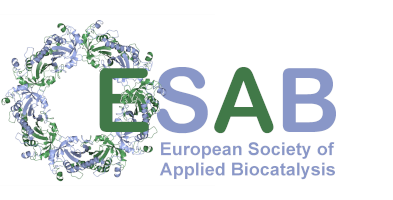Biocatalytic process using pressurized carbon dioxide
Abstract
As carbon dioxide (CO2) is an abundant carbon resource, various utilization methods have been developed. For instance, supercritical CO2, which can be achieved above its critical point of 31°C and 7.4 MPa, has been employed as afunctional solvent in extraction processes and organic synthesis, replacing conventional solvents derived from fossil fuels. However, the application of pressurized CO2 in biocatalysis has remained limited. Therefore, our research has focused on harnessing CO2for biocatalytic processes. Initially, we utilized supercritical CO2as a solvent for lipase-catalyzed transesterifications to replace traditional organic solvents. We established a continuous flow process for synthesizing chiral compounds. Subsequently, we explored the use of CO2-expanded liquids, which are formed by dissolving pressurized CO2into ordinary liquids, as they can be achieved at lower pressures than supercritical CO2. Our findings showed that conversions of challenging, bulky substrates were higher in CO2- expanded liquids compared to corresponding liquids without CO2.
On the other hand, for carboxylation reactions, a two-layer solvent system consisting of an aqueous buffer and a carbon dioxide layer was employed. This choice was necessitated by the fact that carboxylation enzymes are not stable in pressurized CO2without the presence of bulk water. Furthermore, to enhance stability, recyclability and activity, these enzymes were immobilized. In conclusion, these studies collectively pave the way for the utilization of CO2 in biocatalytic processes.
About the Speaker(s)
 Tomoko Matsuda, an associate professor in the Department of Life Science and Technology at Tokyo Institute of Technology, obtained her doctoral degree in science from Kyoto University in 2000. Her doctoral thesis focused on the biocatalytic asymmetric reduction of ketones for organic synthesis. Since then, she has been actively involved in biocatalysis research. She served as an assistant professor at Ryukoku University in Japan from 1999 to 2004, where she initiated research on biocatalysis in supercritical carbon dioxide. In 2004, she was appointed as an associate professor at Tokyo Institute of Technology in Japan. To date, she has authored over 130 scientific articles and has been honored with several awards, including the Taisho Pharmaceutical Research Planning Award from the Society of Synthetic Organic Chemistry, Japan (2001), the Morita Scientific Research Encouragement Award from the Japanese Association of University Women (2006), the Shiseido Woman Researcher Science Grant from Shiseido (2011), and the Takeda International Contribution Award from Takeda Rika Kogyo (2018). Her research interests include the utilization of pressurized carbon dioxide for biocatalysis and the advancement of green chemistry through biocatalysis.
Tomoko Matsuda, an associate professor in the Department of Life Science and Technology at Tokyo Institute of Technology, obtained her doctoral degree in science from Kyoto University in 2000. Her doctoral thesis focused on the biocatalytic asymmetric reduction of ketones for organic synthesis. Since then, she has been actively involved in biocatalysis research. She served as an assistant professor at Ryukoku University in Japan from 1999 to 2004, where she initiated research on biocatalysis in supercritical carbon dioxide. In 2004, she was appointed as an associate professor at Tokyo Institute of Technology in Japan. To date, she has authored over 130 scientific articles and has been honored with several awards, including the Taisho Pharmaceutical Research Planning Award from the Society of Synthetic Organic Chemistry, Japan (2001), the Morita Scientific Research Encouragement Award from the Japanese Association of University Women (2006), the Shiseido Woman Researcher Science Grant from Shiseido (2011), and the Takeda International Contribution Award from Takeda Rika Kogyo (2018). Her research interests include the utilization of pressurized carbon dioxide for biocatalysis and the advancement of green chemistry through biocatalysis.
